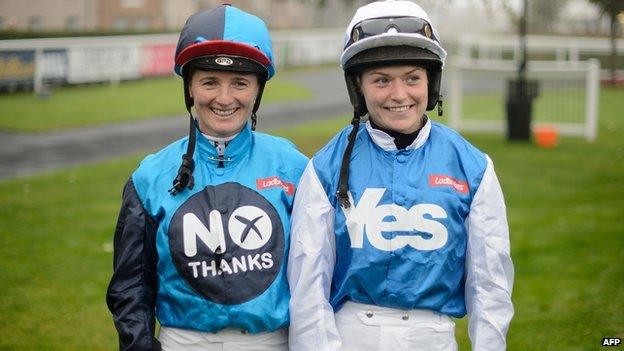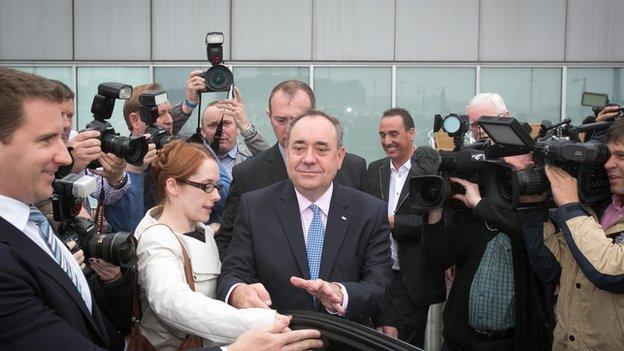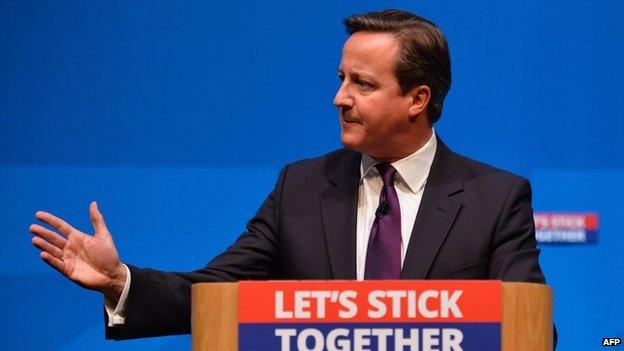Impassioned pleas as end in sight
- Published

Entirely understandably, there is the sense of an end game. But that does not mean in the slightest that the passion has drained from this referendum. Absolutely the reverse.
Two speeches today exemplify that phenomenon, in different ways. Both Alex Salmond and David Cameron delivered emotive and emotional arguments.
Both were surrounded by supporters but, of course, reaching over their heads to the undecided across Scotland.
The prime minister was in Aberdeen: a fleeting visit in the midst of global crisis. The tone was set in advance by a video, played to the crowd, summoning up the Churchill wartime spirit. Ruth Davidson enhanced that by stressing that her choice of No was driven by the heart, rather than the head.
Then the main act emerged onto the stage. The PM said millions throughout the rest of the UK - and many in Scotland - would be "heartbroken" should independence come about. It would be breaking up the UK family of nations.

He set out the economic risks which he associates with a Yes vote. Then two intriguing further points. No, he said, did not mean no change. So much, so familiar. But he said that this had been underlined and enforced by the campaign itself: by the need, apparently, to respond to pressure.
Secondly, he played down his own party - in direct contradistinction to Ed Miliband whose core argument is that people in Scotland do not need to vote for independence: they can vote Labour at the UK general election.
Mr Cameron said that if voters did not like him, well, he wouldn't always be around. Nor would his government. It was a remarkable confrontation of the Tories' relative and persistent unpopularity in Scotland - and the possibility that some may vote Yes simply to give one more kicking to the Conservatives.
Home turf
Alex Salmond meanwhile was on home turf, in Linlithgow. His speech was out of doors in inclement weather - but with a boisterous crowd of supporters to counter any incipient meteorological gloom.
They cheered as he began, they cheered at the close. And they cheered most particularly when Mr Salmond queried volubly how his opponents "dared" to say that Scotland, the land of Adam Smith and enterprise, could not run her own economic affairs.

Other than the economy, his core message again was that this choice was not about Labour or the Tories - or indeed the LibDems or the SNP. It was about ensuring that people in Scotland always secured the government they voted for.
More tonight from Gordon Brown on the prospect of more powers. He set out three guarantees which, he argued, should underpin the planned timetable for delivering a further reformed Union.
Those were an entrenched place for Scotland within the evolving UK; a guarantee that fairness and equity would be at the core of the new deal; and protection for the Barnett Formula linked to the prospect that enhanced tax powers would enable Scotland to protect the NHS, should she choose.
In response, supporters of independence said, far from guarantees, these were empty promises. The prospect of more powers, they say, would vanish into the Westminster "treacle" in the event of a No vote.
Your referendum, your choice.